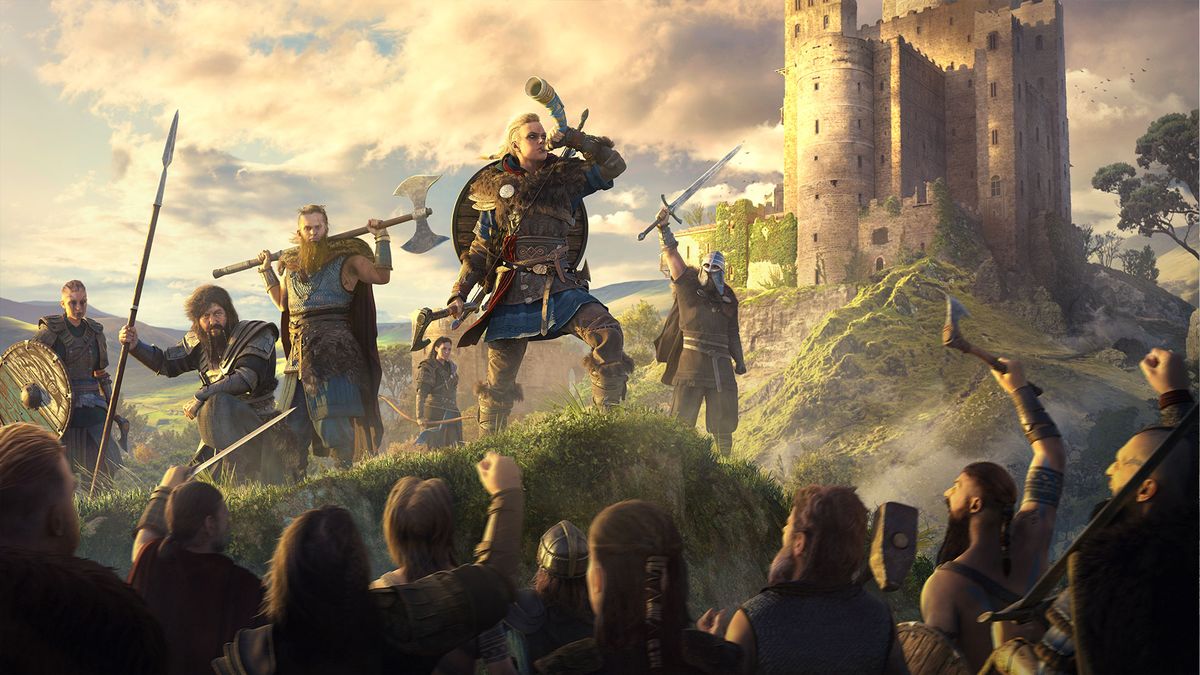12DOVE Verdict
With a sprawling world to conquer and gory combat but also the chance to use that iconic hidden blade, Assassin's Creed Valhalla brings a triumphant balance to the series.
Pros
- +
Multiple beautiful open worlds
- +
Combat has evolved into a gory art
- +
The story is a true saga
Cons
- -
Very occasional confusing quest requirements
Why you can trust 12DOVE
Assassin’s Creed Valhalla has a tailing mission in its main campaign. A very knowing one, full of complaints from Viking Eivor at their target’s speed, but a tailing mission nonetheless. But why start here in a review when there is a sprawling Mercia to celebrate with a raised horn of mead? A frankly ludicrously beautiful world of rolling hills, mystical snowy castle ruins, and the eventual ability to dual wield a longsword and a gleaming axe bigger than most of the inhabitants of your settlement. Oh, and the fact that you can ride a giant wolf instead of a horse, who’ll come lolloping into view at the press of a button and growl with a satisfying low rumble not unlike a truck engine...
It's because that tailing mission is important though, vital even. Don’t worry, there’s only that one but it’s important to address straight away that Valhalla has managed to perfectly rekindle the fires of the traditional Assassin’s Creed experience. One where hay is key and endless ropes stretch helpfully across villain-filled streets. And yes, it’s lit these embers with a torch and a roar. #JustPillagingThings?
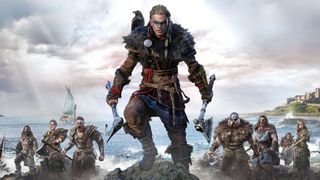
Release date: November 10, 2020
Platform(s): PS4, Xbox One, PS5, Xbox Series X, PC
Developer/Publisher: Ubisoft
If there have been any complaints about the sprawling RPG-osity of both Assassin's Creed Origins and Assassin's Creed Odyssey, it’s that the AC bloodline has been watered down, sacrificed on the altar of narrative decision making and endless loot. Assassin's Creed Valhalla effortlessly brings the two concepts back together, marrying the art of the assassination (complete with a gratifying gory ‘hidden blade vision’ addition) with grand castle sieges with volleys of arrows, shooting down drawbridges with a satisfying thunk, and the unmistakeable glooping of boiling oil.
A Hidden Ones Bureau is one of your earliest constructions in your settlement. As ironic as an Assassins symbol hanging outside a building on a shop sign is, this is a world where you can go contract killing and finding clues with your hood up, but also arrive at monasteries with the echoing war bellow of your horn, readying your axes for some serious, not to mention exhilarating, beheading. But how does it manage to do this? Put simply, Assassin’s Creed Valhalla is huge. With the biggest campaign of an Assassin’s Creed game so far - I clocked in at 63 hours to take over the war room’s alliance map and see the finale - this is a saga worthy of the poet Eivor and mead-drenched tales around the campfire for the centuries to come.
Prepare for an Anglow up

To remain entirely spoiler free, I’ll just say that Eivor’s Raven Clan arrives in 9th Century England, settles down in a peaceful wooded area, and decides to make alliances across the tumultuous Mercia - which feels a lot like arriving in a tantalising Viking theme park. Taking over one unique area at a time feels like a natural way to progress through the story, forging friends and enemies, and building an understanding of the power struggles that keep Mercia so divided. The hunt for peace really isn’t so peaceful, even if you do occasionally decide to stay your blade.
Each region has its own distinct geography, spanning from the picturesque barren shores of Cent to the pleasant pagan Hobbity greenery of Glowcesterscire. Every journey in Valhalla feels incredible, whether you’re letting your longship do the hard work and taking in the panoramic view option, or hoofing it over the countryside with Jesper Kyd and cos swelling atmospheric score in your ears. The cities too, especially the bustling and tightly-packed Roman Lunden, make for perfect reminders of AC cities of yore. These are worlds of verticality and pillars with nods to AC Brotherhood and more than a hint of air assassination. Which, brilliantly, are possible even with high-level enemies.
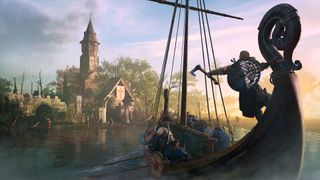
Unlock a skill in the sprawling skill tree called Advanced Assassination and a mini-game will pop up every time you press the assassinate button, giving you a chance to get a moving marker in a zone to finish the deal. It’s a perfect way to balance old and new, meaning boss battles can be dodged entirely if you play your blade right but there’s no reason to worry if you just want to embed axes in limbs. But more on that in a bit.
Known as ‘arcs’, each region’s story comes with the decision making that Odyssey defined, and your actions can have serious consequences. Accuse the wrong Saxon of treachery or install the wrong Ealdorman and your poor decision making will come back to haunt you or y’know, stab someone in front of you. On the whole, this is satisfying with some pleasantly unexpected twists. The brilliant Eivor’s word is law and while some decisions seem clear cut, others are much more morally murky. Quest wise though, sometimes it can be a little unclear where you’ll find clues to back up your decisions and the default ‘explorer’ setting will mean constantly sending your raven skyward to check your next blue-highlighted section of the map. It’s very occasional but feels like a misstep in an otherwise confident system full of all manner of ultra varied quests.
Fight or flyte
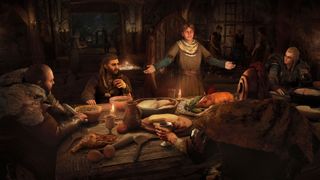
No Creed game has been badly written but the Vikings setting has added a glorious insult game to the mix - tottering teat sucker anyone? - and Valhalla’s script is hidden blade sharp. A warrior called Ivarr is a particularly entertaining standout character with no patience for peace and a comedian’s tongue. The conversations with Odin too in some surprisingly dark cinematic Viking versions of the traditional ‘white room’ make for some troubling viewing. Combo the best written Creed with the addition of a charisma bar to unlock extra useful conversation options and things get interesting. Flyting opportunities, or Viking rap battles, can be found in most towns, demanding quick thinking and a penchant for rhyme. It’s not easy at first but you’ll get there in time…
But the heart of Assassin’s Creed Valhalla isn’t in its quick insults, it’s your settlement and the relationships you form there. And yes, some of them are romantic but don’t expect the sprawling romance options of Odyssey. Eivor’s bedroom opportunities are less throwaway but equally fun. This collection of buildings starts out small but do enough raids and steal enough supplies and you can gradually build a full-on village. Repeated trips home to Randvi to report your progress and checking in everywhere makes for a compelling loop that’s constantly rewarding.
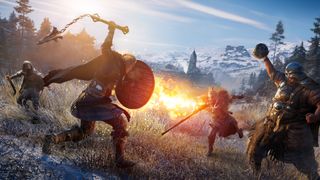
Everything you collect can be brought back. Hidden One Hytham - yes, I see you, Ubisoft - takes the medallions of the Order of the Ancients members you bring down in exchange for powerful abilities, the hunter's hut is ready for your spoils, and there’s even a museum for Roman Artefacts, meaning that even your most distracted of open-world activities will always give you a digital pat on the back.
The settlement evolves throughout the campaign too, letting the decisions you’ve made influence its inhabitants. This means that even if there are really only two main endings, your settlement arrangement and longship crew can be very different from everyone else's. This is your community and it constantly feels like home to tell your stories of war. You can even make it your own aesthetically with sections for custom decorations. Why can’t I get skull piles like that in IKEA, eh? One other major addition is Valka, your seer, who with the help of a potion can take you to two mythical universes. Incredibly, these are almost the size of Odyssey’s DLC realms, beautiful and, in one case, packed with wish fulfilment, but a surprising addition in an already vast world.
The settlement too is the only place you can properly spec your weapons and gear, with blacksmith Gunnar upgrading each piece from superior to flawless and then up to mythical. It’s here where Valhalla breaks the trend of the previous two Creeds where we were drowning in weaponry and gear, constantly dismantling for loot. Instead, specific armour pieces can be found in chests across the world, each with their own playstyle benefits. Each piece can be levelled up with iron and you’ll be juggling rune slots to make the most of your combat style. It initially feels restrictive after the bounties of Origins and Odyssey but quickly feels like each piece suddenly has value and each upgrade is a decision to ponder. Do you spec everything up equally or build yourself a mega axe?
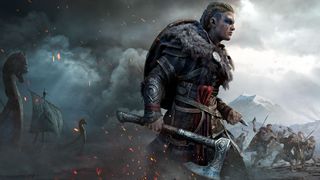
Speaking of axes, Valhalla’s combat is significantly evolved. A dual wield system means Eivor can defend with a shield while raining down light and heavy attacks with an axe, but equally can pop another axe or hammer in their left hand. No-one is queuing up here to take a swing at you with Mercia’s wide range of enemies all attacking at once, meaning knowing when to dodge and use up precious stamina or parry is vital. Whether you’re facing bannermen or, my own personal nemesis, pikemen with spears, breaking down defences is constantly an enjoyably hefty challenge. The new ration system too means no refilling health, which can often go badly wrong if you aren’t holding enough mushrooms and a band of enemies get nasty. It’s a great balance of challenge and skill, making stealth a valuable and thankfully now viable option if you’re not ready for the fight.
Remember though. This is a Viking game. A history of warriors written in blood and as the saga goes on, every skill point upgrade and ability means the combat only goes from strength to strength. The skill tree is frankly intimidating, stretching enticingly off on unseen strands hidden under a fog of war. But level up and you’ll reveal the ability to throw dropped weapons at foes, freeze time for a matter of seconds with a perfect dodge and roll over an enemy’s back as they use their unparriable rune attack. Suddenly combat situations become perfect opportunities to combo your favourite skills, and it’s a relief that you can fully respec your skill tree to make sure you’re heading in the right direction. You’ll know that when you’re gleefully watching yet another animation of Eivor annihilating a heavy enemy with their own weapon.
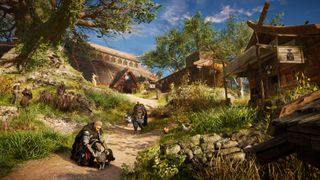
Then though, there’s everything else and the wonder of this world. Watching the sunrise over a standing stones puzzle, gleefully running your wolf alongside surprised deer in lush forests, building cairns at the top of a mountain pass, destroying cursed objects hidden in echoing caves deep below the ground. This is an Assassin’s Creed game - are you even playing one if sometimes you stand on things instead of standing next to them? - but this is another glorious realm of possibility. An intimidatingly huge, atmospheric world of mysteries to solve but now with even more opportunities. There’s also an intriguing central mystery with a frankly catnip lore ending for longtime AC fans and some WTF moments for everyone else. Stronger, bolder, and with a welcome reintroduction of the best bits of the older games, Valhalla is a roaring bloodied success with a true heart.
Reviewed on Xbox Series X where we experienced occasional screen tearing in busy and built-up areas.
Louise Blain is a journalist and broadcaster specialising in gaming, technology, and entertainment. She is the presenter of BBC Radio 3’s monthly Sound of Gaming show and has a weekly consumer tech slot on BBC Radio Scotland. She can also be found on BBC Radio 4, BBC Five Live, Netflix UK's YouTube Channel, and on The Evolution of Horror podcast. As well as her work on GamesRadar, Louise writes for NME, T3, and TechRadar. When she’s not working, you can probably find her watching horror movies or playing an Assassin’s Creed game and getting distracted by Photo Mode.
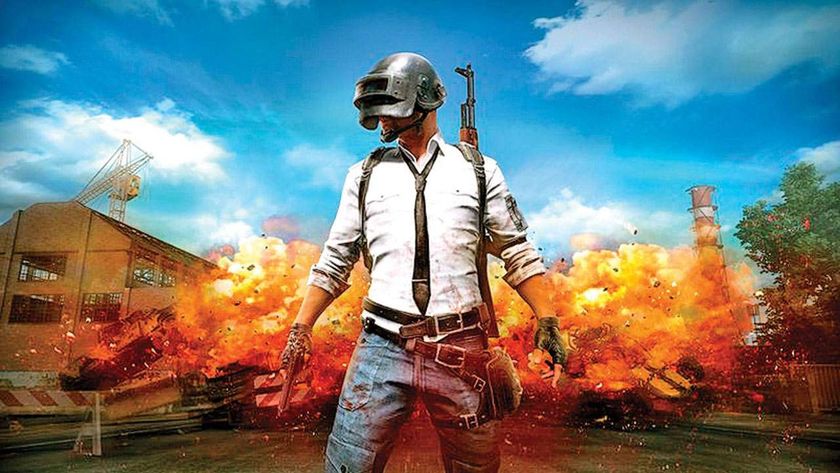
PUBG creator explains why he's making a super-hard survival game instead of PUBG 2: "This is the game I've wanted to make"
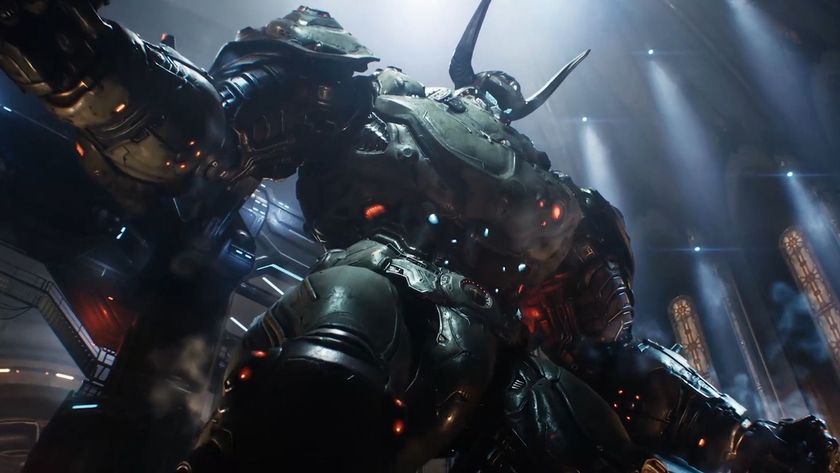
Doom: The Dark Ages features "the largest spaces we've ever made,” but id Software knows you don't want to spend 2 hours in a single level
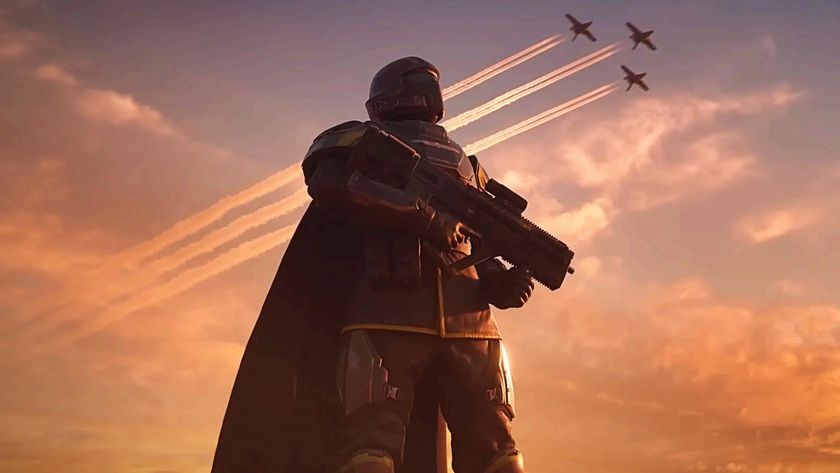
Another Helldivers 2 collaboration is already in the "early stages" after the sci-fi shooter crossed over with Killzone
Most Popular




